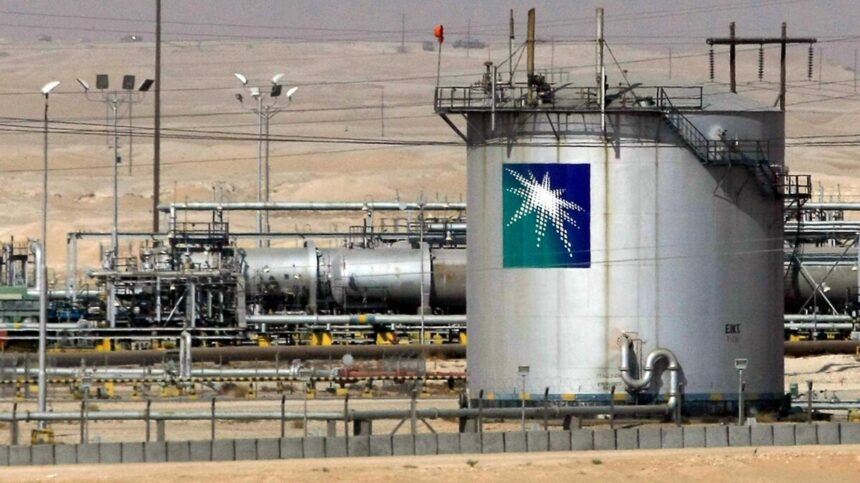Tensions arise as India and Saudi Arabia struggle to reach consensus on crude supply terms for major refinery projects.
Saudi Arabia’s plans to invest in two major oil refineries in India are currently at an impasse due to disagreements over crude supply terms. The project, which is critical to Saudi Arabia’s strategy of expanding its reach in the growing Indian energy market, has been delayed amid differences in pricing and supply conditions.
Refinery Projects at Risk
Last month, Saudi Arabia and India agreed to collaborate on building two state-of-the-art oil refineries. The ambitious initiative is part of Saudi Arabia’s broader effort to tap into the burgeoning Indian market, which is poised to drive global oil demand in the coming decades. However, the early-stage discussions have faltered due to a lack of consensus around crude supply arrangements.
According to sources familiar with the discussions, Saudi negotiators are insisting on supplying half of the crude required by the refineries at official selling prices (OSPs) — a pricing mechanism that is typically higher than market rates. However, India is pushing back, seeking a more favorable deal where Saudi Arabia’s share of crude supply would be closer to 20%, and at discounted prices to OSPs.
The ongoing disagreements have stymied progress on the project, with sources indicating that the stakes are high, not just financially, but diplomatically as well.
Read More: OPEC+ Powerful Output Adjustment Influences Global Oil Market Dynamics
India’s Market Influence in Question
India, the world’s third-largest oil importer, has become a key player in the global energy market, especially as it seeks to diversify its energy sources and strengthen its refining capacity. Saudi Arabia, the world’s largest oil exporter, views India as a crucial partner for securing long-term demand for its crude oil. However, as global oil markets continue to shift, Saudi Arabia has seen its dominance in the Indian market begin to wane. The rise of discounted oil imports from Russia has further complicated the dynamics.
Indian refineries, like those owned by Bharat Petroleum Corp. Ltd. (BPCL) and Oil and Natural Gas Corp. (ONGC), have been increasingly attracted to cheaper crude options from other sources. This shift has made it harder for Saudi Arabia to secure the kind of deal it initially hoped for, particularly given the market pressures that have made Indian refiners more price-sensitive.
Strained Diplomatic Relations
The stakes of this deal extend beyond business interests — they are tied to the broader diplomatic relationship between the two nations. In 2019, Saudi Crown Prince Mohammed bin Salman pledged to invest $100 billion in India, with the goal of strengthening ties between the two countries. However, so far, only a fraction of that amount has been realized, leading to growing frustration on both sides.
In addition to the refinery projects, plans for a $60 billion refinery with participation from Saudi Aramco and other key players fell through due to complications around land acquisition. Similarly, attempts to purchase a stake in Indian conglomerate Mukesh Ambani’s Reliance Industries were also derailed, further adding to the pressure to get this deal right.
The failed ventures have raised concerns about the ability of both nations to fulfill their investment promises. Failure to reach an agreement on the new refinery projects would be a significant blow to Saudi Arabia’s ambitions to strengthen its presence in India, as well as its broader global energy strategy.
Also Read: OPEC+ Signals Bold Supply Increase, Oil Prices May Fall Further
Saudi Arabia’s Refinery Stake Proposal
Despite the roadblocks, Saudi Arabia is still eager to secure its position in India’s refining sector. One option on the table is for Saudi Arabia to take a 15% stake in Indian Oil Corp.’s Panipat refinery, one of the largest in the country. This proposal is under review by the Indian government, and if approved, it could provide a renewed avenue for collaboration between the two countries.
However, without a resolution on crude supply pricing, Indian refiners are increasingly skeptical about the merits of involving Saudi Arabia. With local banks offering financing for refinery construction, the need for foreign investment, particularly at the terms Saudi Arabia is proposing, has become less urgent for Indian companies.
A Delicate Balancing Act
As the situation stands, both Saudi Arabia and India find themselves at a crossroads. On one hand, Saudi Arabia seeks to secure long-term demand for its crude oil by investing in high-growth markets like India. On the other hand, India’s refiners are increasingly prioritizing cost-efficiency and market access, making the terms of the proposed supply deal a key sticking point.
The outcome of these negotiations will not only impact the future of Saudi Arabia’s investments in India but will also send a signal to other nations about the changing dynamics of global oil markets. As both sides continue to weigh their options, the fate of these major refinery projects hangs in the balance.
Follow 10X Times for more business news.






